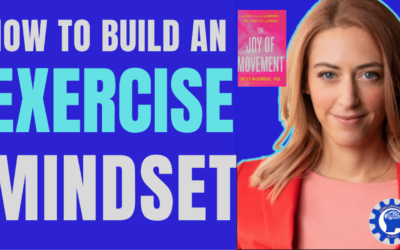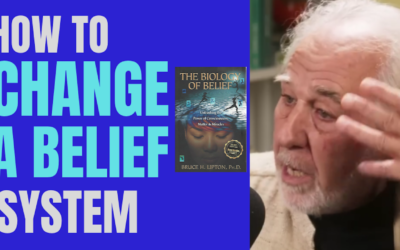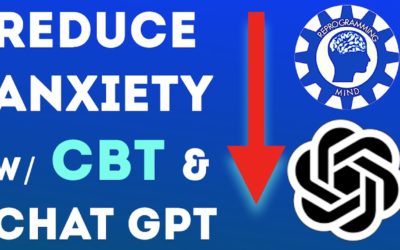Dr. Richard Davidson, a neuroscientist from the University of Wisconsin in Madison, and Dr. Sara Lazar, a neuroscientist based out of Massachusetts General Hospital and the Harvard Medical School gives an interview on his findings with meditation and its effects on the brain.
The following interview has been edited and condensed for clarity.
Host Bob Macdonald: Dr. Davidson, what was the most striking thing you found when you studied the meditation experts the Tibetan Buddhist monks?
Richard Davidson: Probably the most striking thing was in terms of the scientific findings was the presence of these very high amplitude gamma oscillations that occurred in the meditation period when they were meditating, but also were very prominent in their so-called baseline state. And I should say that these are if you will professional meditators. These are people who have an average of about 34,000 hours of lifetime practice and listeners can go do the arithmetic at home. But that's a pretty big number.
BM: What was going on in their brains that's different from what would be going on in say my brain?
RD: One of the important characteristics of these long term meditators if you will is that the distinction between the state of meditation in their ordinary state if you will is blurred.
This is the what we think of as the transition from a state into a trait. That is, it becomes an enduring characteristic of their minds and brains, rather than something transient that occurs only when they practice meditation.
Dr. Sara Lazar: Well we looked at brain structure and what we found is that there's several brain regions where there is more gray matter in the long term meditators compared to non-meditators. And as Dr. Davidson said that when you start meditating regularly that there is a shift that there's a blur between your meditation state and your everyday state.
And so we're interpreting these differences in gray matter to reflect that. That this is perhaps why and how you can get these shifts you're not meditation state looks more like your meditation state - the brain actually starts to rewire itself. And that's what we saw evidence for in these long term meditators.

SL: The most pronounced changes were in the insula. This is an area that's involved in integrating sensory experiences with cognitive thinking. And so you could think of that, sort of in a very loose hand-waving sort of way, as the mind body sort of area. We also found areas in the front of the brain which is an area involved in rational thinking and decision making.
BM: Dr. Lazar, we hear a lot about enlightenment, if meditation really does work. From a scientific point of view what is that possible do you see it?
SL: I think it's important to make a distinction between people who meditate for 20, 30, 40 minutes a day for stress reduction and people who are really committed to obtaining enlightenment. As Dr. Davidson pointed out, you could think of those monks as being professional meditators. And so I think that it really takes that sort of commitment -- full time commitment for many, many years -- in order to reach enlightenment. For the average Joe who's just meditating for stress reduction that that's not really a realistic goal.
BM: Dr. Davidson, you say that meditation could make people feel worse. What do you mean by that?
RD: It can exacerbate depression, it can precipitate psychosis. It can do some harm. It's really important for an individual who may be predisposed and have a history of some psychiatric difficulty to engage in meditation practice under the guidance of a teacher who is both a mental health practitioner as well as a meditation teacher.
And often if a person I think is doing worse it could very well be because the nature of the instruction is not as attuned to where the person is as it might be.
BM: Dr. Lazar, how do you feel about people going to a phone app for their guided meditations without a teacher present?
SL: The apps are like a book or any other recording or any other things that have existed in the past. I think they're great as a supplement but I don't think anything compares to having a teacher that you can talk to about your experience.
Exploring the Most Popular ADHD Medications for Children: A Comprehensive Guide
The choice of ADHD medication for children should be based on careful consideration of their specific needs, medical history, and response to previous treatments. Consultation with a qualified healthcare professional is essential to determine the most appropriate medication and dosage.
Unveiling the Anura MagicMirror: Revolutionizing Health Monitoring with AI that Can Predict When You’ll Die
The Anura MagicMirror offers a plethora of health measurements, encompassing vital physical indexes, metabolic health risk assessments, mental health parameters, and cardiovascular risk evaluations. From pulse rate and breathing rate to mental stress levels and 10-year risk assessments for heart attack and stroke, the device provides a comprehensive snapshot of an individual’s health.
Unlocking the Power Within: How to Master Dark Feminine Energy
Now that we understand the essence of Dark Feminine Energy and its significance, let’s explore practical steps to master it:
1. Self-Awareness: Begin by exploring your own psyche. Engage in self-reflection and journaling to identify aspects of Dark Feminine Energy within yourself. Recognize your strengths and areas that need nurturing.
2. Embrace the Shadow: Dark Feminine Energy often resides in the shadows of our psyche. Shadow work involves confronting and integrating repressed emotions, fears, and insecurities. Seek the guidance of a therapist or counselor if needed.
Understanding Cognitive Behavioral Therapy: Techniques and Benefits
In today's post, we dive deep into...
Unveiling the Journey to Healing: How a Narcissist Recovery Coach, Book, and Newsletter Can Help You Reclaim Your Life
this blog post will guide you through the transformative process of healing. We will explore the vital role of a narcissist recovery coach, the power of a well-crafted narcissist recovery book, and the benefits of subscribing to a dedicated narcissist recovery newsletter. By equipping yourself with these valuable resources, you can reclaim your life, rebuild your self-esteem, and foster personal growth.
Hypnosis to Get Over a Breakup Like a Rockstar
after. Fortunately, people have been researched that have exhibited resilience, post-traumatic growth and post-ecstatic growth.
Not only are these people capable of bouncing back after a breakup but they also have very particular brain regions that are indicative of resilience.
What the Brain of a 104-Year-Old Nun Taught Us About Vascular Dementia
Vascular dementia is a form of dementia primarily caused by impaired blood flow to the brain. It typically results from the blockage or damage of blood vessels in the brain, leading to a reduction in oxygen and nutrients reaching brain cells. As a consequence, brain cells become damaged or die, and cognitive functions decline.
Can Hypnosis Work to Get Over a Breakup? Hypnotist Paul McKenna Answers
How I get people over heartbreak is because we have a natural mechanism within us to get over things. And so when we’ve decided we want to move on in a relationship, romantic or not, it’s usually because the other person’s done several things that we see as ‘It doesn’t work for me anymore. I’m through.’ And so what a hypnotist does is artificially creates those, gets you to go remember the times when you thought I’m really over it,
Discover the Hidden Benefits of Meditating with Back Support
While the fundamental techniques of meditation have remained relatively unchanged over centuries, the tools and accessories that accompany the practice have evolved, and for a good reason. Enter the meditation chair with back support—a game changer for many.
From Novice to Guru: Why Every Meditator Should Consider a Meditation Chair with Back Support
Enter the meditation chair with back support. Whether you’re new to meditation or a seasoned practitioner, the right seating can be a game-changer. Let’s delve into why this chair might be your next big meditation upgrade.
Dr Bruce Lipton – Where the Hell Do Diseases Come From?
There are two aspects to the biological imperative. Survival of the individual, yourself let’s say, which is meanwhile seeking air, water, food, shelter and things like this because this keeps us alive. The second one is also very critical because the second part of biological imperative is survival not of the individual, but survival of the species which means there’s a drive to reproduce to keep the species.
Utilizing Chat GPT and the Law of Attraction: A Powerful Combination for Manifestation
Introduction: The Law of Attraction,...
What Kind of Therapist Do I Need?
With so many types of therapists and treatment options available, it can be challenging to know where to start. In this article, we’ll guide you through the process of finding the right therapist so you’ll know what kind of therapist you might find best for your mental health needs.
What Subconscious Programs Prevent Getting Over a Breakup?
Many people struggle to get over a breakup, even months or years later. The reason for this is often due to subconscious programs that are keeping them stuck in the past. In this article, we will explore what these programs are and how to overcome them so that you can move on with your life.
Natural Approaches to Improve a Child’s ADHD without Medication
While medication can be an effective treatment option for children with ADHD, it is not the only solution. By implementing natural approaches, such as establishing consistent routines, promoting physical activity, optimizing nutrition, implementing behavioral strategies, and seeking professional guidance, parents can help improve their child’s ADHD symptoms and overall well-being
Elevate Your Meditation Game: How Back Support Can Make All the Difference
For beginners and even some experienced practitioners, holding a posture for extended periods can lead to discomfort, disrupting the flow of meditation. The spine, in particular, plays a crucial role. An aligned spine promotes better breathing and energy flow. The introduction of a chair designed for meditation, especially one with back support, caters to this physical dimension, ensuring optimal posture for a deeper meditative state.
Kelly McGonigal Interview on How to Build an Exercise Mindset
At the heart of every successful fitness journey lies a deep-seated belief in the power of exercise to transform our lives. Whether we’re looking to boost our energy levels, strengthen our bodies, or simply feel better about ourselves, a regular workout routine can make all the difference. However, getting started can be a challenge, especially if you’re struggling with motivation or find it hard to stick to a plan.
How to Change a Belief System- Dr. Bruce Lipton
One of the key concepts that Lipton explores in his work is the role of subconscious programming in shaping our beliefs and behaviors. He argues that our subconscious mind, which is responsible for 95% of our thoughts and behaviors, is largely programmed during our childhood years based on the beliefs and attitudes of our parents and other authority figures in our lives.
15 Common Cognitive Distortions and How They Can Impact the Trading Mindset
Cognitive distortions are patterns of thinking that can lead to inaccurate and negative perceptions of reality. In the context of trading, cognitive distortions can be particularly damaging to a trader’s mindset, as they can lead to impulsive and irrational decision-making.
Here are 15 common cognitive distortions and how they can impact the trading mindset:
Unlock Deeper States of Meditation: Why Supportive Seating is a Game-Changer
Meditation equipment can significantly influence your experience. One vital element, often overlooked, is seating. As the meditation community grows and more people recognize its benefits, there’s a pressing need for tools that support this transformative journey.
Purposes in Life for Disagreeable Personality Type
Disagreeable personality types are individuals who are often described as antagonistic, aggressive, and confrontational. These individuals can be challenging to deal with, and their behavior can be detrimental to their relationships with others. In this post, we will explore some of the possible purposes for individuals with a disagreeable personality type so that being disagreeable can be more advantageous.
17 Luxurious Meditation Retreats
Meditation is an essential practice for anyone seeking to improve their mental and physical well-being. That’s why you might find this scoured from searching the globe to bring you 17 of the most luxurious meditation retreats in the world.
13 Benefits Gained by Attending Meditation Retreats
Meditation has been shown to improve focus and concentration, which can help you be more productive and efficient in your daily life.
Meditation has been linked to enhanced creativity and problem-solving skills. A retreat provides an opportunity for you to tap into your creativity and experience more of your full potential.
Reducing Children’s Anxiety with Stories: A Comprehensive Guide
Most children experience anxiety, whether it’s the fear of the dark, being separated from their parents, or the stress of starting a new school. While it is a normal part of childhood, anxiety can be overwhelming for some children and can negatively impact their development and well-being. However, there are many strategies parents and caregivers can use to help children manage their anxiety, one of which is using stories.
How to Reduce Children’s Anxiety
According to the Anxiety and Depression Association of America (ADAA), anxiety disorders affect one in eight children, and untreated anxiety can lead to poor school performance, poor social relationships, and low self-esteem.
Symptoms of anxiety in children may include excessive worrying, fear of separation, avoidance of certain situations, physical symptoms such as headaches or stomach aches, and difficulty sleeping. As a parent or caregiver, it is important to recognize the signs of anxiety and seek professional help when necessary.
Does Hypnosis Work to Get Over a Breakup? The Truth Behind Hypnotherapy for Healing Heartbreaks
If you’ve ever gone through a breakup, you know how hard it can be to get over it. You may have tried all sorts of things – from crying to rebounding – but nothing seems to work. That’s where hypnotherapy comes in. Hypnosis has been used for centuries to treat a wide range of conditions, from anxiety to addiction. But can it help you get over a breakup?
In this post, we’ll explore the truth behind hypnotherapy for healing heartbreaks.
15 Cognitive Distortions That Can Hinder Your Ability to Move on From a Breakup
While it’s normal to feel a range of emotions after a breakup, some people may find themselves trapped in negative thought patterns that prevent them from moving forward. These negative thought patterns are known as cognitive distortions, and they can significantly impact your ability to heal after a breakup. In this article, we will explore 15 common cognitive distortions and examples of how each one can prevent you from getting over a breakup.
17 Reasons Why People Choose Online Therapy
Online therapy, also known as tele-therapy or e-therapy, has become increasingly popular in recent years due to its convenience and accessibility. However, there are also concerns about the effectiveness and safety of online therapy.
One concern is the potential for technology glitches and connectivity issues that could disrupt sessions. This can be frustrating for both the therapist and the client, and may affect the quality of care. Additionally, some people may not have access to a reliable internet connection or a private space to participate in online therapy sessions.
7 Cognitive Distortions to Overcome for Getting Over a Breakup Faster.
Some ways of thinking are better than others. And certain ways of thinking can prolong the healing process and make it harder to move on. These are called cognitive distortions, and by recognizing and challenging them, you can begin to get over your breakup faster. Here are seven cognitive distortions to consider when you need to get over a breakup faster.
How to Rewire Anxiety
Anxiety can be challenging to manage, but there are ways to rewire your thought patterns and behavior to reduce its impact on your life. Here are some proven strategies you can try:
How to Stop Negative Self-Talk: Techniques and Strategies for a Positive Mindset
If you struggle with negative self-talk, you’re not alone. However, it’s essential to address this issue to improve your mental health and live a fulfilling life. In this article, we’ll discuss techniques and strategies to stop negative self-talk and cultivate a positive mindset.
How to Get Over a Breakup with Hypnosis
Getting over a breakup with your ex can be difficult and time consuming but it doesn’t have to be this way. People can get over a breakup with less frustration by relaxing and allowing their subconscious mind to do the work of detaching from your ex. Hypnosis can help you with this process of getting over a breakup.
15 Cognitive Distortions and How to Recognize Them to Reduce Anxiety
Anxiety is a common mental health concern that can be triggered by various factors such as stress, trauma, or even genetics. One way to manage anxiety is by recognizing and addressing cognitive distortions. Cognitive distortions are irrational and negative thought patterns that can intensify anxiety symptoms. In this post, we will discuss 15 cognitive distortions and how to recognize them to reduce anxiety.












































